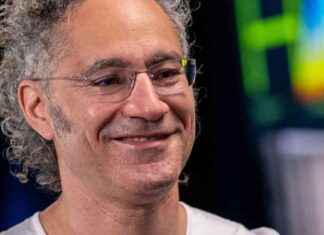Three Quebec researchers have developed a “turnkey” technology that promises to “revolutionize” athlete development through unprecedented performance analysis.
The Quebec company SciencePerfo is launching an assault on the athlete training market with its “SpeedTracker”, a unique system that it took six years to develop.
This technology combines a speed sensor and data processing software to analyze an athlete’s profile. A camera also films the acceleration of the athletes to scrutinize their movements.
“Before, we only knew the time it takes to leave A to go to B. Now we have all the information on what is happening between the two. We reverse the way of learning skating. We move from an approach where we look at what is happening at the biomechanical level and we correct according to personal shortcomings,” explains Léandre Gagné Lemieux, one of the founders of SciencePerfo, also a kinesiologist and sports biomechanist.
Suitable for multiple sports
Their technology can be applied to a multitude of sports, including hockey, football and track and field. “The more the sprint is relevant in your sport, the more the sensor has added value for the people who use it”, specifies Maxime Provencher, sports physiotherapist.
Emmy Fecteau, a hockey player from Concordia University, participated in the presentation of the SpeedTracker. Victim of a knee injury last summer, she took advantage of the new system to improve her skating.
“After my knee injury, I did the test and they saw that I wasn’t bringing my feet back properly. I was able to work on this aspect, ”says the 23-year-old skater.
The product that this trio of researchers wants to promote is priced at $9,000. “It’s turnkey,” repeats Maxime. All the equipment necessary to operate the “SpeedTracker” arrives in a large suitcase.
The three men have assembled a database filled with the profiles of more than 3,000 athletes, including some QMJHL and NHL players. Alexis Lafrenière, of the New York Rangers, and Laurent Dubreuil, medalist at the last Olympic Games, lent themselves to the game. The athletes can thus compare their performances.
“The Montreal Canadiens would benefit from using these sensors. I think we are providing a solution to performance stagnation,” says Simon Laurendeau, president of SciencePerfo, kinesiologist and sports biomechanist.
Orders in Europe
Already, some partners of the trio of researchers have placed an order, including skating schools in France and Switzerland, with which it already has a partnership. The target clientele ranges from schools with sports-study programs to universities, including professional teams and research centers.
Tutorials to learn how to operate the equipment are available and training courses have been prepared so that users can “make the most of” the available data.







